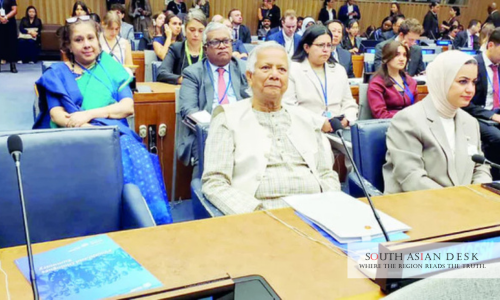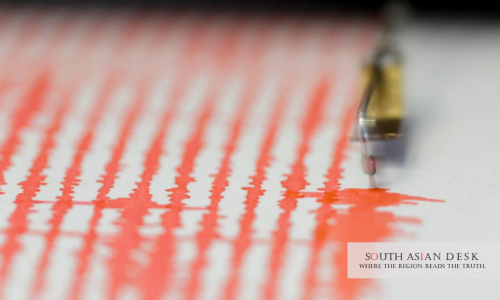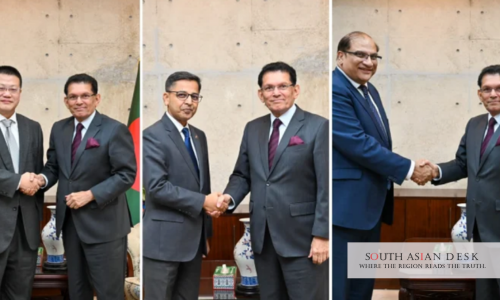NEW YORK: Chief Adviser Professor Muhammad Yunus secured Bangladesh secures investments, allies commitments from global leaders during bilateral meetings on the sidelines of the 80th United Nations General Assembly (UNGA) on Thursday, September 25, 2025, to drive economic recovery and regional partnerships. Hosted at the UN Headquarters and a New York hotel, the engagements with Italy, Pakistan, Finland, and Kosovo focused on trade expansion, business forums, and democratic support, following Yunus’s arrival on Monday, September 22, amid Bangladesh’s post-upheaval reforms.
Why Bangladesh Secures Investments
As Bangladesh navigates transitional governance ahead of February 2026 elections, Bangladesh secures investments, allies gain at UNGA, bolstering its economic pivot, potentially injecting vitality into South Asia’s growth corridors. By diversifying alliances beyond traditional partners, Yunus’s diplomacy counters regional isolation risks, enhances trade resilience against climate shocks, and promotes collaborative frameworks like Saarc revival, fostering stability from the Bay of Bengal to the Himalayas.
Key Engagements at UNGA: Forging New Alliances
Chief Adviser Yunus’s packed UNGA itinerary underscored Bangladesh’s proactive foreign policy reset. According to the Chief Adviser’s Press Secretary Shafiqul Alam, the meetings with four world leaders elevated bilateral ties, with discussions spanning economic cooperation, humanitarian aid, and political reforms. No specific monetary pledges emerged, but invitations and forum proposals signal intent for tangible inflows.
At the US-Bangladesh Executive Business Roundtable, titled “Advancing Reform, Resilience and Growth,” held earlier on September 25, Yunus urged executives from MetLife, Chevron, and Excelerate Energy to deepen stakes in Bangladesh’s energy and financial sectors. Accompanied by six Bangladeshi political figures—including BNP Secretary-General Mirza Fakhrul Islam Alamgir and Jamaat-e-Islami’s Syeed Abdullah Muhammad Taher—the event highlighted reforms to attract foreign direct investment, projected to rise under the interim government’s USD 7 billion IMF-backed stabilisation plan.
Bilateral Breakthroughs: Italy and Pakistan Lead the Way
These Bangladesh secures investments, allies overtures align with Yunus’s UNGA address on Friday, September 26, where he emphasised youth empowerment and equitable growth, per UN records. The speech, delivered at 10:00 AM EDT, framed Bangladesh’s July-August 2024 transformation as a youth-led blueprint for global progress.
Strengthening Ties with Italy for Investment Flows
In a pivotal hotel meeting, Yunus and Italian Prime Minister Giorgia Meloni explored avenues to amplify trade, which reached EUR 1.5 billion in 2024 per Bangladesh Export Promotion Bureau data. Meloni proposed an Italy-Bangladesh Business Forum to streamline investments in manufacturing and renewables, while pledging a December 2025 visit to Dhaka. The dialogue extended to joint initiatives against human trafficking, building on 2025 pacts for intelligence sharing and training.
According to Foreign Affairs Adviser Md Touhid Hossain, these steps position Italy as a key European ally, potentially unlocking EUR 500 million in green energy projects. Energy Adviser Fouzul Kabir Khan noted synergies with Bangladesh’s 40 per cent renewable target by 2041, enhancing Bangladesh secures investments, allies prospects in sustainable sectors.
Expanding Trade Horizons with Pakistan
Yunus’s UN Headquarters sit-down with Pakistan Prime Minister Shehbaz Sharif focused on bilateral trade growth, valued at USD 1.2 billion annually. Sharif extended an invitation for Yunus to visit Islamabad, while Yunus offered condolences for Pakistan’s September floods, which Sharif linked to climate change. The leaders reaffirmed August 2025 commitments to mutual respect, eyeing enhanced connectivity via the China-Pakistan Economic Corridor.
National Security Adviser Dr Khalilur Rahman, present at the talks, highlighted opportunities in textiles and pharmaceuticals. This UNGA engagement revives stalled Saarc dialogues, with both nations advocating Asean observer status for Bangladesh to diversify South Asian alliances.
Finland and Kosovo: Support for Democratic Transition
Meetings with Finnish President Alexander Stubb and Kosovo President Vjosa Osmani addressed Bangladesh’s electoral roadmap. Stubb endorsed free polls, discussing Rohingya repatriation and regional links like Chattogram Port integration with Nepal and Bhutan. Osmani emphasised economic collaboration, aligning with Kosovo’s post-independence growth model.
According to the Ministry of Foreign Affairs, these Bangladesh secures investments, allies dialogues garnered endorsements for the interim government’s anti-corruption drive, with Finland pledging technical aid for judicial reforms. SDGs Affairs Principal Coordinator Lamiya Morshed underscored youth-focused pacts, tying into UNGA’s Sustainable Development Goals agenda.
At the Asia Society event, Yunus quipped on cross-border opportunities: “You have to go through Bangladesh. You can invest in Bangladesh. Bangladesh is going to invest in your territory.” This resonated amid tensions with India over student quotas and misinformation, per official briefings.
Broader Diplomatic Engagements at UNGA
Yunus’s UNGA calendar extended beyond bilaterals. On September 24, he conferred with US Secretary of State Antony Blinken, affirming Indo-Pacific stability and human rights, including Rohingya protections—sheltering 1.2 million refugees. A high-level Rohingya side event, co-hosted with the US, drew pledges for sustained aid, per State Department statements.
Further, Yunus met World Bank President Ajay Banga and WTO Director-General Ngozi Okonjo-Iweala, seeking support for LDC graduation in 2026. Queen Máxima of the Netherlands discussed financial inclusion at 11:30 AM on September 23, while a social innovation roundtable at 2:45 PM mobilised private financing.
These interactions, according to Shafiqul Alam, introduced accompanying leaders to global networks, fostering inclusive Bangladesh secures investments, allies strategies.
Background: Bangladesh’s Post-Upheaval Diplomacy
Since assuming leadership post-July 2024 student-led ouster of Sheikh Hasina, Yunus’s interim administration has prioritised global re-engagement. UNGA 2025 marks a milestone, with Bangladesh hosting the first High-Level Rohingya Conference on September 30. Historical ties—like 1971 independence recognition by Pakistan and Italy—inform current pacts, while microcredit pioneer Yunus’s Nobel stature amplifies calls for USD 5 billion in annual FDI.
Reforms span labour rights and media freedom, per State Department notes, amid 22 per cent youth unemployment. The Club de Madrid invited Yunus, with former Slovenian President Danilo Türk lauding his work: Yunus described Bangladesh as “still walking through the jungle” toward democracy.
Impacts: Economic and Humanitarian Ripples
No immediate disruptions arose from UNGA activities, but anticipated inflows could lift GDP growth to 6.5 per cent in 2026, per IMF forecasts. Rohingya discussions secured UN commitments for USD 1 billion in aid, easing Cox’s Bazar burdens. Regionally, Saarc revival talks with Pakistan counterbalance BIMSTEC frictions.
What’s Next: Implementing UNGA Gains
Follow-up missions, including Meloni’s December visit, will operationalise forums. Domestic workshops on investment facilitation are slated for October 2025, while election preparations intensify. As alliances solidify, Bangladesh secures investments, allies momentum at UNGA promises a fortified path to prosperity and peace.
In essence, Yunus’s UNGA diplomacy exemplifies how Bangladesh secures investments, allies can transform transitional challenges into enduring regional assets.
Published in SouthAsianDesk, September 26th, 2025
Follow SouthAsianDesk on X, Instagram, and Facebook for insights on business and current affairs from across South Asia.






